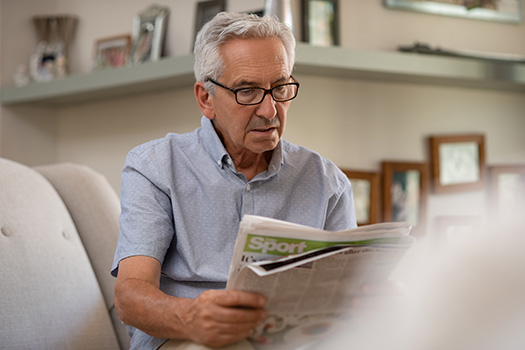Stroke survivors begin various types of therapy shortly after their medical teams get them stabilized. In addition to working with occupational and physical therapists, seniors can perform several exercises independently. The following activities are known to help older adults regain cognitive functions diminished by stroke-related brain damage.
1. Crafting
Crocheting, knitting, needleworking, drawing, and painting are all beneficial. Even coloring pages with crayons helps stroke survivors strengthen their hand muscles and increase their fine motor skills. Working with children’s dough or clay is another alternative. While a senior works on a craft, multiple regions of the brain are stimulated to visualize the medium, decide what to create, and devise a strategy to make the design. Seniors may also need to use problem-solving skills to make corrections to their creations as they work.
2. Putting Together Jigsaw Puzzles
Jigsaw puzzles require visual acuity to assess where each piece goes. Problem-solving skills, logic, and reasoning are needed to match the shapes and colors of pieces to determine their places in the puzzle. Seniors must use fine motor skills to pick up the pieces and place them in the appropriate positions, and they may gain a sense of accomplishment and achievement after successfully completing a puzzle.
A professional caregiver can be a wonderful puzzle-solving companion for your loved one. Certain age-related conditions can make it more challenging for seniors to age in place safely and comfortably, but Fair Oaks live-in care experts are available around the clock to help seniors manage their health. Whether your loved one is living with dementia or is recovering from a stroke, you can trust the professional live-in caregivers from Home Care Assistance to enhance his or her quality of life.
3. Doing Written Puzzles
Crosswords and word search puzzles are ideal for stimulating cognitive function. Working on puzzles in books or online requires using fine motor skills to circle or type the letters needed to solve the clue. Memory and problem-solving skills come into play as older adults must recall how words are spelled. When reading puzzle instructions or clues, the visual center of the brain is stimulated. Sudoku puzzles are also recommended, as they require remembering basic math and sequencing skills to complete the grids.
4. Reading
If senior stroke survivors have retained their basic vocabulary skills, reading can be a helpful tool. Reading a magazine, book, or short story helps stroke survivors boost their memory and language skills. They remember more words and their meanings as the visual and learning centers of the brain are stimulated. Reading comprehension skills increase. Family members can assist in the process by asking the senior to explain what he or she has read. Reading is also a good way to alleviate the frustration and loneliness stroke survivors may experience during recovery.
An in-home caregiver can provide companionship and cognitive stimulation for your parent. Seniors can face a variety of challenges as they age, many of which can be mitigated with the help of professional in-home caregivers who provide high-quality elderly home care. Trust Home Care Assistance to help your elderly loved one age in place safely and comfortably.
5. Performing Physical Exercises
When trying to regain physical function, stroke survivors are often given exercises to strengthen the regions of the body that were affected by the stroke. Physical exercise also benefits seniors for another reason. A group of researchers from the Boston University School of Medicine found that during exercise, the brain produces a chemical compound known as irisin, which is known to have neuroprotective abilities. The hormone also travels through the blood and triggers genes that play a major role in the learning and memory processes.
At-home caregivers can provide the information and support seniors need when recovering from a stroke. If your elderly loved one needs help maintaining a high quality of life while aging in place, reach out to Home Care Assistance, a trusted provider of Fair Oaks home care. Our caregivers provide transportation to and from medical appointments and social events, nutritious meal preparation, assistance with daily exercise, and help with everyday tasks like bathing, grooming, and light housekeeping. Home Care Assistance will work with you to customize a care plan that’s just right for your loved one’s needs. Call us today at (916) 485-4663 to discuss how we can give you the peace of mind that comes from knowing your loved one is being cared for with professionalism and compassion.
